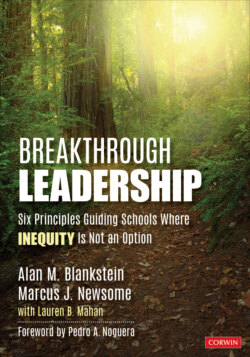Читать книгу Breakthrough Leadership - Alan M. Blankstein - Страница 10
На сайте Литреса книга снята с продажи.
Leadership Matters Adaptive Leadership
ОглавлениеThe challenges brought about by the 1957 flu are somewhat different from those we face in a COVID-19 or post-COVID-19 world. Yet the lessons of great leadership endure.
Maurice Hilleman saw the need to act and did so for the greater good. He did not await official authority, instructions from President Dwight D. Eisenhower, or an infusion of additional capital from the Walter Reed Army Institute of Research. He started without the answers as to whether there was even a new virus that was spreading. He had no idea as to whether he could apply an existing cure or, if not, how he would invent a new one.
Even before COVID-19, educators were increasingly being placed in positions for which there is no easy answer and no script to follow. In the Petersburg, Virginia, case study first brought to light in Chapter 2 (page 30), the new superintendent discovered shortly after arriving that the city had not paid its bills to the schools in months and funds weren’t available to meet staff payroll that week; the health insurance had ceased on teacher and staff medical claims; utility payments were delinquent, and the stoppage of services was imminent; meals for students were at risk of discontinuance; and the city had cut school funding by more than 30 percent. Dealing with these matters wasn’t taught in grad school! Nonetheless, strong leadership and teamwork resulted in a turnaround that both pulled the district out of debt and was recognized nationally.
▸ The adaptive demands of our time require leaders who take responsibility without waiting for revelation or request. One can lead with no more than a question in hand. (Heifetz & Laurie, 2011, p. 78)
In 2020, the world was thrown a COVID-19 curveball. The demands of schools closing challenged teachers and leaders at all levels to solve problems they didn’t even know they had. How will we deliver online instruction when students have no internet access? How will we ensure food students need to survive will arrive in a safe and timely manner each day? What will we do to provide high school seniors with the courses they need to graduate?
In addition to finding adaptations to meet new challenges, educators were called on to be transformative, inspiring staff to perform beyond their perceived capabilities (Steinmann et al., 2018). Millions of educators valiantly rose to the challenges COVID-19 posed, commandeering school buses for delivery of student supplies and sending out tens of millions of meals each week to children who would otherwise not eat. The value of fundamentals, and even the often overlooked staff, became apparent:
We’ve focused on taking care of and feeding our families and staff; people’s well-being; communicating with families with signs saying “we miss you”; and alerts to them from the principal. The true heroes became our food service staff—they came in to make food, while others were sent home. I was impressed that food service workers knew all the kids by name, what students like and don’t like to eat, and worried about many of the children when they go home. They have great pride in the work they do. (Amy Griffin, personal communication, April 10, 2020)
